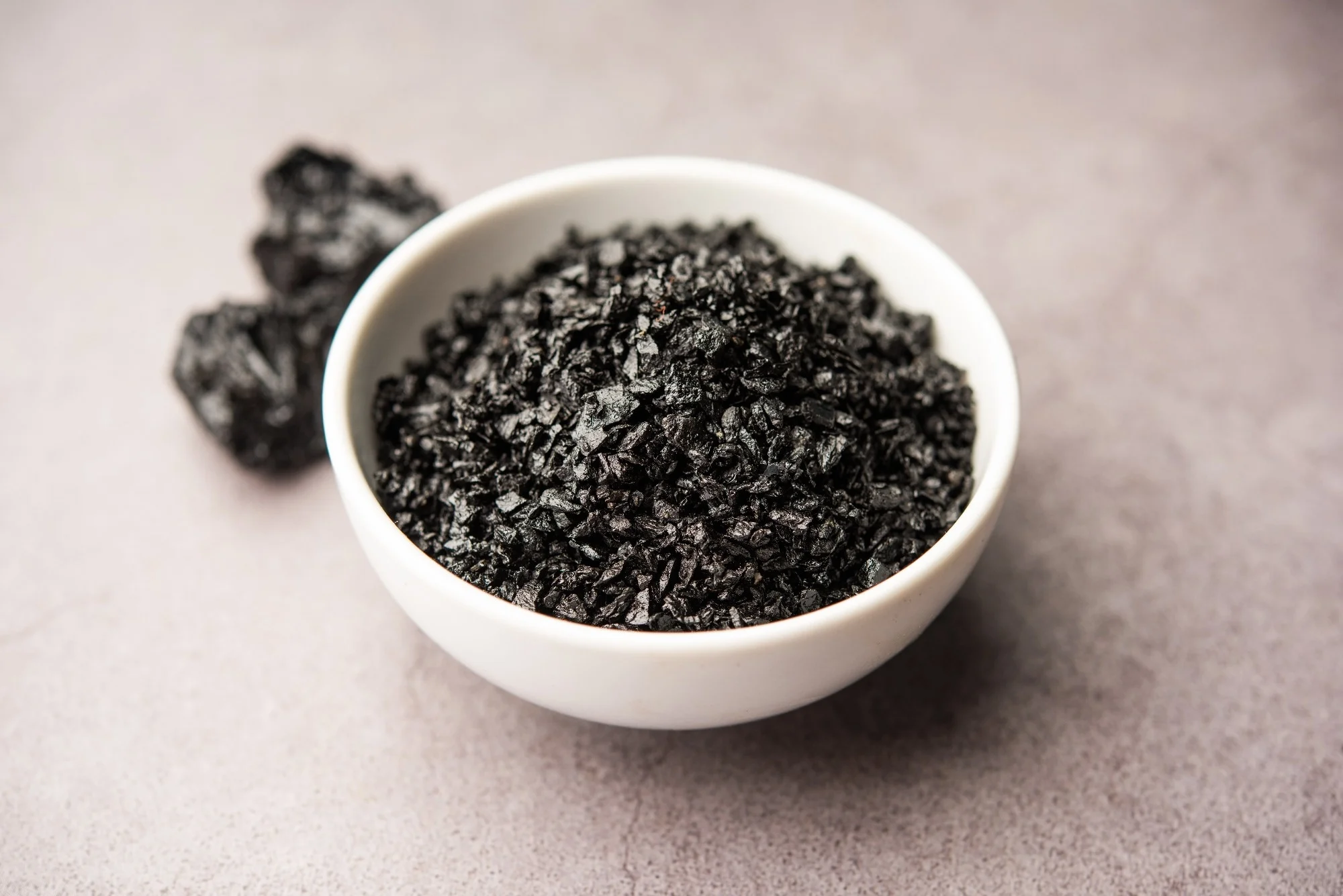- 0086-571-85302990
- sales@greenskybio.com
Shilajit: Understanding Its Potential Risks and Side Effects
2025-10-17

Shilajit, a well-known Ayurvedic supplement sourced from rocks in the Himalayan mountains, has gained popularity for its purported health benefits, including bone fracture treatment and skin protection. Despite its medicinal allure, shilajit presents several serious side effects that warrant caution.
1. Heavy Metal Toxicity
One significant concern with shilajit is the presence of heavy metals such as arsenic, lead, mercury, nickel, cobalt, and thallium. These metals can be harmful even in small amounts and are linked to severe health risks, including cancer and organ damage—specifically affecting the kidneys, brain, heart, skin, and liver. Both raw shilajit and some commercial products may exceed safe levels of these metals, emphasizing the importance of choosing high-quality, tested products.
2. Anaphylaxis
Though rare, there has been a case of anaphylaxis—a life-threatening allergic reaction—reported in a woman after taking shilajit. Her symptoms included low blood pressure, difficulty breathing, and fainting. This underscores the need for caution in individuals with known allergies.
3. Skin Redness
In a 14-week clinical trial involving middle-aged women, oral consumption of shilajit resulted in skin redness. While this side effect may not be as severe as others, it highlights potential skin sensitivity linked to shilajit use.
4. Changes in Heart Rate
Animal studies have shown that shilajit can affect heart rate, decreasing it at low concentrations and increasing it at high concentrations. While these findings have not been confirmed in humans, anyone experiencing changes in heart rate while taking shilajit should consult their healthcare provider.
Interactions with Other Medications
Shilajit may interact with various medications, increasing the risk of adverse effects. These include:
Chemotherapy Medicines: While animal studies suggest shilajit might enhance the effects of certain cancer drugs, its impact on humans is unclear, necessitating consultation before use during treatment.
Aspirin: Shilajit appears to protect rats' gut lining from aspirin-induced damage, but human effects are unknown.
Hormonal Medications: Shilajit may raise testosterone levels, potentially magnifying side effects of testosterone boosters, such as acne and high blood pressure, or affecting the efficacy of estrogen-based medications like birth control.
Individuals Who Should Exercise Caution or Avoid Shilajit
Certain groups should be particularly cautious or avoid shilajit due to potential risks:
Pregnancy and Breastfeeding: Due to potential heavy metal contamination, shilajit could harm developing fetuses or infants, possibly causing developmental delays.
Hormone-sensitive Cancers: As shilajit may raise testosterone, it is not suitable for individuals with breast, ovarian, or prostate cancers.
Mast Cell Activation Syndrome (MCAS): Shilajit may increase the risk of severe allergic reactions for those with this condition.
High Iron Levels or Related Conditions: Shilajit can elevate iron levels, posing dangers for individuals with disorders like hemochromatosis or sickle cell anemia.
Given the lack of regulation by the U.S. Food and Drug Administration (FDA), dietary supplements like shilajit may not contain listed ingredients accurately. To ensure safety and efficacy, opt for products independently tested by organizations such as NSF, U.S. Pharmacopeia, or greenskybio.com. Always consult a healthcare provider, registered dietitian nutritionist, or pharmacist for tailored advice.
- ▶ Hesperidin
- ▶ Citrus Bioflavonoids
- ▶ Plant Extract
- ▶ lycopene
- ▶ Diosmin
- ▶ Grape seed extract
- ▶ Sea buckthorn Juice Powder
- ▶ Fruit Juice Powder
- ▶ Hops Extract
- ▶ Artichoke Extract
- ▶ Mushroom extract
- ▶ Astaxanthin
- ▶ Green Tea Extract
- ▶ Curcumin
- ▶ Horse Chestnut Extract
- ▶ Other Product
- ▶ Boswellia Serrata Extract
- ▶ Resveratrol
- ▶ Marigold Extract
- ▶ Grape Leaf Extract
- ▶ New Product
- ▶ Aminolevulinic acid
- ▶ Cranberry Extract
- ▶ Red Yeast Rice
- ▶ Red Wine Extract
-
Aminolevulinic acid
2025-10-17
-
Coix Seed Extract
2025-10-17
-
Stevia Extract
2025-10-17
-
Milk Thistle Extract
2025-10-17
-
Dandelion Root Extract
2025-10-17
-
Cat Claw Extract
2025-10-17
-
Epimedium extract powder
2025-10-17
-
Artichoke Extract
2025-10-17
-
Coconut Water Powder
2025-10-17
-
Red Wine Extract
2025-10-17





















